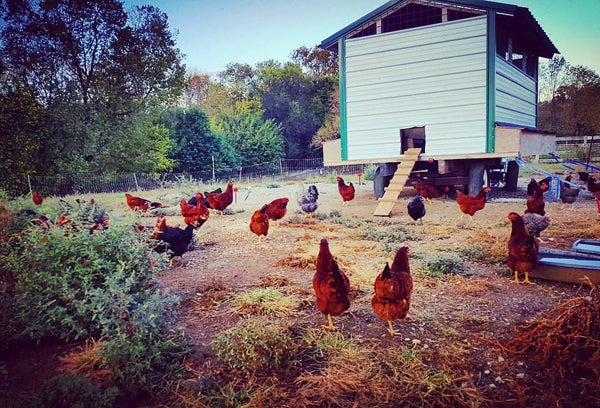Find someone local who has egg-laying chickens
Published 4:20 pm Friday, February 24, 2017

- Photo by Abigail Whitehouse

Many eggs are not all they are cracked up to be. Don’t get me wrong — I love eggs. I like them scrambled, fried, in omelets, on burgers — I could go on. I also love to bake, so I need eggs for cakes, cookies and brownies.
However, when I go to the store and stand in front of the egg section, I just have no idea what is going on. There are so many different kinds of eggs with so many different terms on their labels that it’s often hard to figure out what I want to buy.
Some eggs are now being sold in plastic containers, too. So not only do I have to try to avoid plastics everywhere else, now I have to avoid them with my eggs too.
With words like organic, all natural, cage free, free range and others plastered on egg cartons, it can be very confusing to sort out what means what — and what means nothing at all.
Before we look at what the different terms do and do not mean, here’s what I really want: I want to buy eggs that came from chickens who were treated humanely. I don’t want to give my money to a place that keeps its chickens in tiny cages and never allows them to roam around or go outside like chickens should be able to do.
That seems like a simple enough thing to achieve, but as I have learned, it’s anything but simple.
Currently, cage size and living conditions for chickens vary depending on the farm in the U.S. But a lot of farms use battery cages, which means several chicken share a single cage and the cages are stacked next to one another and on top of one another. Chickens in battery cages live in a space about as big as an iPad. They are unable to perch or spread their wings.
Because they are constantly standing on wire, they develop issues with their feet. And because they are unable to move very much, they develop muscle problems.
If you buy the cheapest eggs off the shelf, they likely came from chickens in these kinds of living conditions.
Now, let’s decode the language used on egg cartons to see whether we’re helping chickens live better lives with our purchasing choices.
“All Natural.” This phrase literally means nothing. This is not a regulated term and anyone can put this on their eggs. It doesn’t mean the eggs have met any kind of standard at all. This is not a good indicator of how the chickens are treated, but it is a good indicator that the producer is trying to manipulate you with its packaging.
“Cage Free.” This means the chickens laying the eggs are not in cages, so that’s good. However, it doesn’t mean they get to go outside. Often, “cage-free” birds all live together in a communal space, and they do get more space than caged birds. Cage-free chickens average about one square foot of space and are able to flap their wings, perch, and lay their eggs in a nest. These birds actually have a higher mortality rate than birds in cages — 11 percent compared to 5 percent for caged chickens, according to NPR. However, they do get a better quality of life.
“Free Range.” These birds are not in cages and they do have “access” to the outdoors.
According to the USDA, “Eggs packed in USDA grade-marked consumer packages labeled as free range must be produced by hens housed in a building, room, or area that allows for unlimited access to food, water, and continuous access to the outdoors during their laying cycle. The outdoor area may be fenced and/or covered with netting-like material.” So “free range” is definitely a step up from “cage free,” though there are no guarantees about what kind of “outside” area the chickens have available — it may very well not be green grass.
“Pasture raised.” This term is used by some farmers and other entities and it sounds exactly like what I’m looking for in my eggs: chickens who live on grass and get to spend their days pecking away outside in the sun. But I was unable to find information confirming that this term is regulated well by the USDA. If you raise chickens or are otherwise familiar with the “pasture raised” term, send me an email — I’d love to know for sure if this term can be trusted when it shows up on a carton of eggs.
Clearly there is a lot of misinformation and misleading labels in the egg industry. The best thing I have done is to get to know someone local who has egg-laying chickens. I buy my eggs directly from her when I can, and I know how her chickens live because she can tell me about them.
I even think these local eggs taste better. I don’t know if that’s because they get to be outside and spread their wings or because I know they do. Either way I’m very happy and so are the birds.



